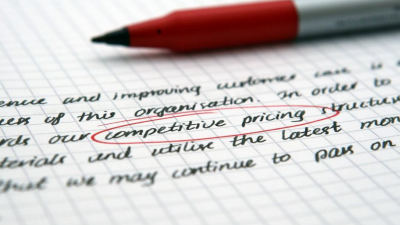Inflation impacts the cost of goods, but it also “rushes companies” to make decisions and charge customers incorrectly. “I always try to tell companies that it is really good that they are now looking into pricing software, but they still need to take the time to do it properly,” says Sara-Marie Gansert, Solution Strategist at Pricefx.
“I don’t see inflation driving interest in pricing. I see it driving pressure. Pressuring companies into looking at pricing or software,” explains Gansert.
As a pricing strategist working hands-on with companies, Gansert says some businesses she’s now called in to assist with were losing margins every month before they sought help. “You don’t wait where you’re already losing money to start improving your strategies and to start rebuilding your pricing processes.”
A high price to pay
Gansert says if a business is rattled to find a solution pressured by inflation, it is “not the right thing for you; you will just keep losing money, and in the end, you spend something on top of that (to correct your mistakes).”
She says trying to stay calm when your business is facing financial challenges is always tricky. “To stay calm enough in these times of high pressure, losing margins while it’s getting into a critical potion with your business and still taking the right decisions.”
“It also has to do with the area that you are exposed to more in pricing,” adds author and professor in the industry Tim Smith. “By working with mostly e-tailers or people who need to find the prices of competitors (I’ve seen) in the last three years, prices at the consumer level have gone up dramatically, by 10% inflation or 9% that’s normal. I want to know those prices of my competitors faster so I can move mine up.”
Tough decision during high inflation
Speaking to businesses in the industrial sector about whether to charge customers more or not, Smith says the inflation period was like “crack, cocaine” to them. He simply told them to raise the prices, “and they could just do it.” These companies didn’t have any pressure like in other sectors to invest in pricing capabilities and software. They just had the pressure to raise prices, and it worked, so they did it again. Now that the world is coming out of high inflation, this will put strong pressure on businesses,” predicts Smith.
Relooking pricing models
With inflation costing businesses more money, many e-commerce companies use a dynamic charging approach, particularly those with diverse product portfolios. This model automatically adapts pricing in response to many factors’ fluctuations, according to Symson, a software company.
Many companies are now considering using artificial intelligence to process data to determine the correct product prices. Experts warn that humans must still review the processes to select the right outcome.
ALSO READ: Pricing experts warn using AI to read data must be contextualized
“You need to define what your targets are. Do you want to optimize your pricing levels? Do you want to optimize your margins? What business outcome do you want to achieve using AI?” asks Gansert. She says it’s crucial not solely to rely on software. “If you leave it to the pure calculations, the outcome could also be: sell one of your products for one million dollars, and you’re done for the year.”
Smith is a firm believer that artificial intelligence will not replace people. “You need the people. People have to convince sales they can get this higher price, and you won’t lose the customers. Convincing finances that this is the right price and I know it’s below your target margin but that’s the price you are going to sell and maximize your profits. You have to convince people and that’s a persons-issue.”
About the author
Mia is a multi-award-winning journalist. She has more than 14 years of experience in mainstream media. She's covered many historic moments that happened in Africa and internationally. She has a strong focus on human interest stories, to bring her readers and viewers closer to the topics at hand.














